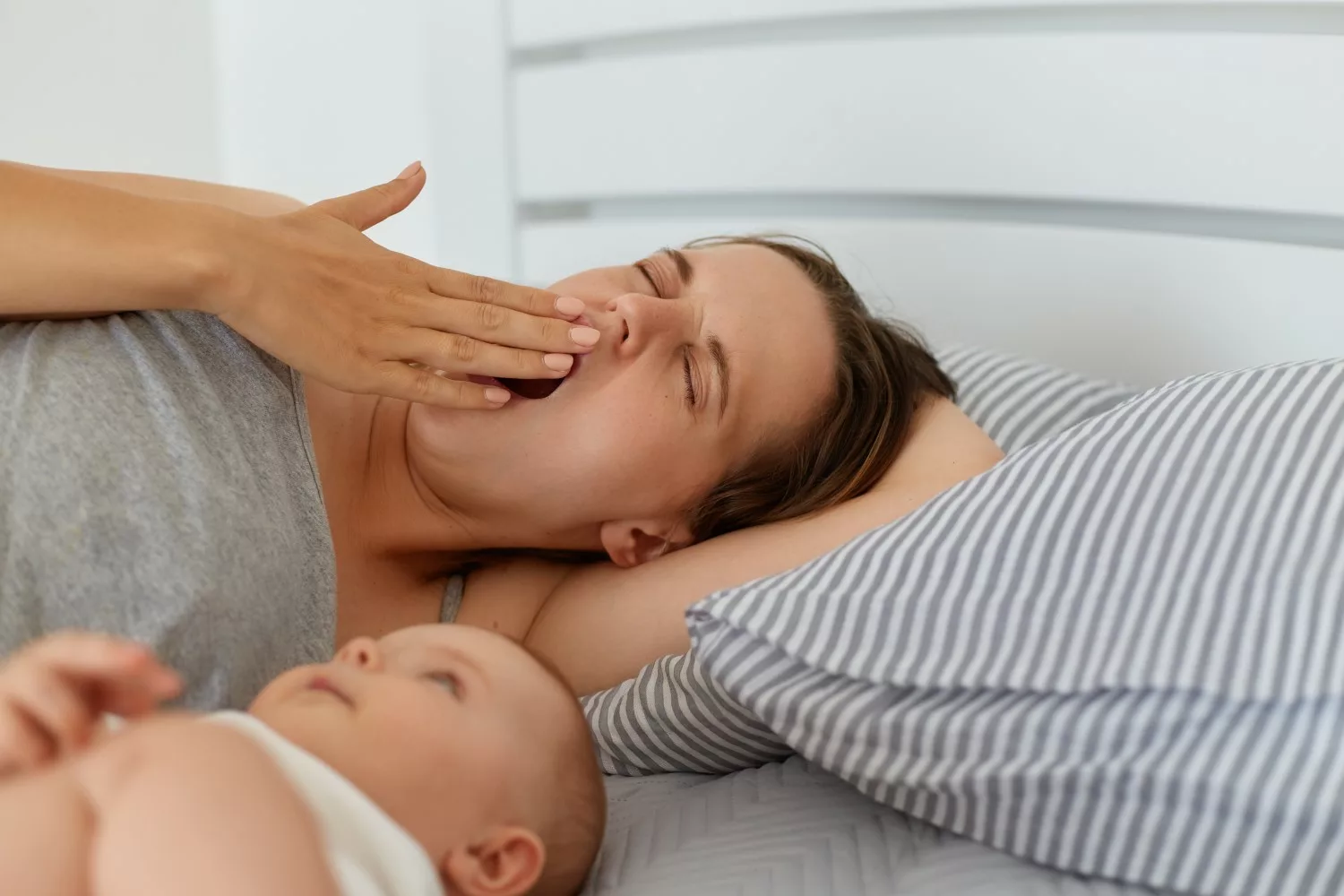
The haze of sleepless nights with a baby can lead to more than fatigue — it can age you. Researchers at the University of California Los Angeles took blood samples from 33 new mothers to discover their biological age, which can differ from chronological age.
Researchers found that, a year after giving birth, the biological age of mothers who slept less than seven hours a night by the time their baby was 6 months old were 3 to 7 years older biologically than those who slept seven hours or more. More than half of the mothers were getting less than seven hours of sleep, both six months and a year after birth, according to an Aug. 5 news release.
“The early months of postpartum sleep deprivation could have a lasting effect on physical health,” said the study lead author Judith Carroll, UCLA professor of psychobiology. “We know from a large body of research that sleeping less than seven hours a night is detrimental to health and increases the risk of age-related diseases.”
She encouraged new mothers to get extra sleep by taking naps when the baby sleeps, allowing family and friends to help, and asking their partner to help with the baby during the night or early morning.
“We found that with every hour of additional sleep, the mother’s biological age was younger”, Carroll said.
Co-author Christine Dunkel Schetter, UCLA professor of psychology and psychiatry, cautioned that increased biological aging doesn’t automatically cause harm to mothers’ bodies. “We don’t want the message to be that mothers are permanently damaged by infant care and loss of sleep,” she said. “We don’t know if these effects are long lasting.”
Source: NIGHTCAP@BedTimesMagazine.com
